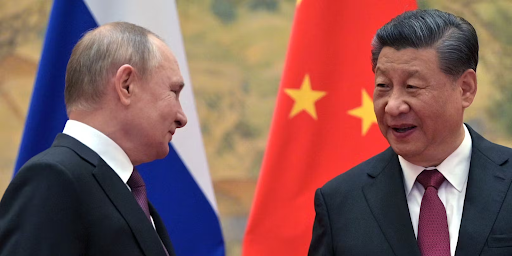In a powerful prelude to the Shanghai Cooperation Organisation (SCO) Summit, Russian President Vladimir Putin delivered a dual message: a scathing critique of Western economic policies and a glowing appraisal of Russia’s burgeoning eastern alliance, particularly with China. He squarely accused the US and EU of imposing “discriminatory sanctions” that intentionally obstruct global development.
Putin asserted that these punitive measures, a response to the conflict in Ukraine, represent a threat not just to Russia but to the broader community of nations, especially the BRICS bloc. He made it clear that Moscow and Beijing are in complete lockstep in their opposition to such tactics, viewing them as a coercive tool of a fading unipolar world. This shared stance, he indicated, is a cornerstone of their deepening strategic cooperation.
The Russian leader contrasted this confrontational relationship with the West against the flourishing partnership with China, which he described as having reached an “unprecedented level.” He pointed to a massive $100 billion surge in bilateral trade since 2021 as proof of this dynamic relationship, cementing China’s role as Russia’s most crucial economic partner.
This narrative of Western hostility versus Eastern opportunity will be central to Putin’s diplomacy in Tianjin. He aims to leverage the summit to further consolidate a bloc of nations committed to his vision of a “fairer, multipolar world order,” built on the solid foundation of the Russo-Chinese axis and independent of Western economic and political pressure.

